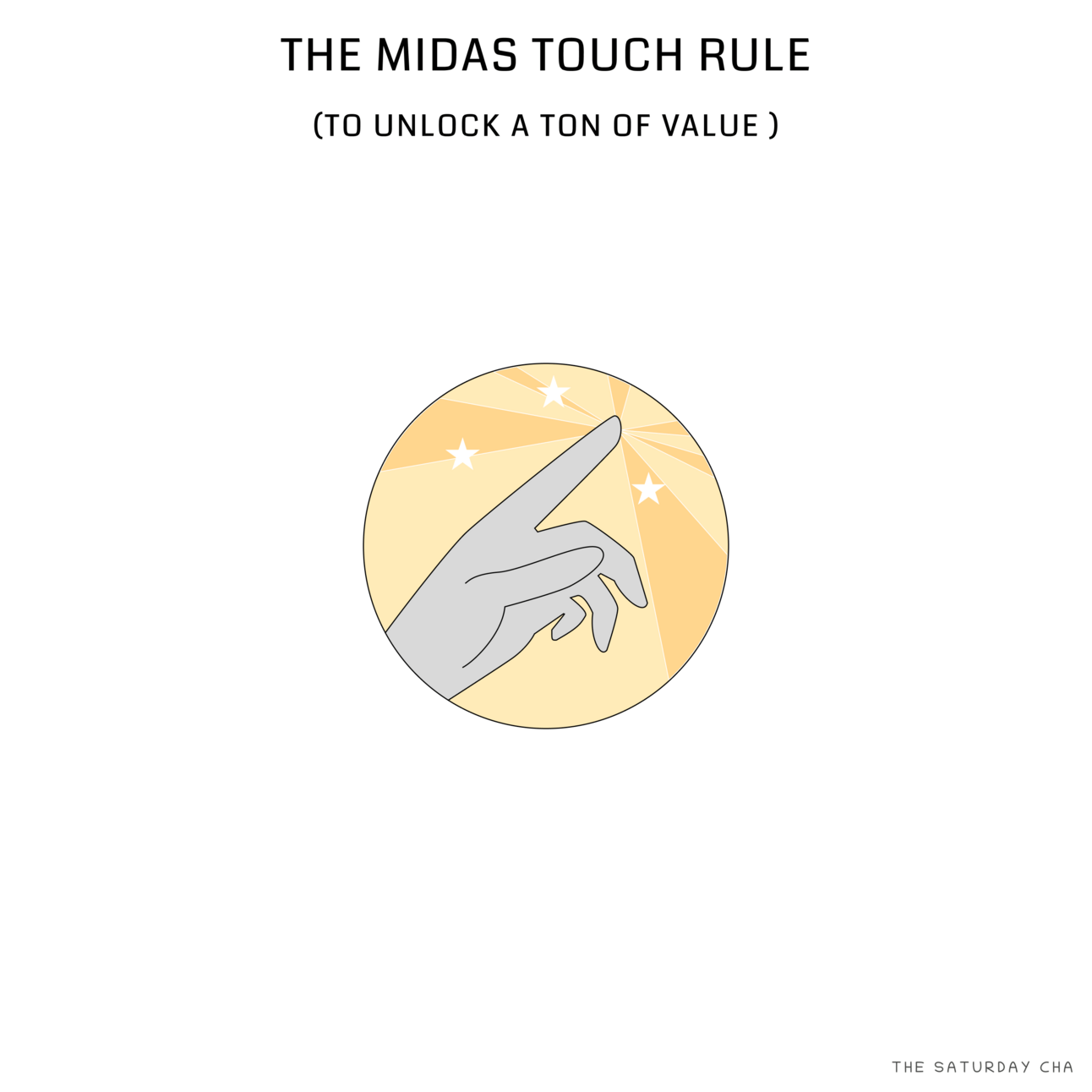After reading this post, we’ll see:
What is my “Midas touch rule”
Why you should know about it.
How you can use it in your personal & professional lives.
TL; DR:
Add value to anything you touch. If you feel you cannot add value, don’t touch it now. Plan to work on it later. Or, delegate it.
That’s my “Midas touch” rule. King Midas is from Greek mythology. He legendary ability to turn everything he touched into gold earned him fame.

How’s my AI - generated image?
In essence, my rule says: “whatever you touch, turn it into gold”
But why should you know about this?
Time is always against us. But, we spend a lot of time distracted. At the end of the day, you're tired. You felt busy the whole time. But did you do anything? Or kept jumping between tasks?
The goal of this rule:
Practice deep work.
Deep work is done with 100% focus. With 0 interruptions. It is difficult to practice. But if mastered, your productivity will double. Deep work is crucial in today's hyper - distracted world. To practice deep work, we need to change:
Our habits
Our environments
Our systems of working
Stop context switching.
Assume you're working on an important project. Your phone buzzes. Your girlfriend says "hi". You respond "hello, hon" and return to work. A couple of minutes later she responds "whatcha doin"?
You respond "just working" and try to get back to work. But you cannot. This is cos you've switched contexts 3 times in a few minutes. Per research, every time you do this, it takes ~ 22 minutes to return back to focus.
Be intentional with your time.
This rule will help you guard your time. Instead of jumping from task to task, it'll remind you to schedule time for tasks. Hopefully, it will help become intentional with time.
'If today were the last day of my life, would I want to do what I am about to do today?

Personal & professional examples to use this rule.
Taxes.
Assume that tax deadline is coming up. Today is a busy day. But you think "let me atleast start my tax work now, and I can continue it later". A few minutes later, you have to pick up the groceries. So you stop your tax stuff.
An hour later, you try to resume your tax stuff. But you have difficulty in focussing.
Email.
You're working on an important project. Suddenly you're worried - "let me check my email once, what if I have something urgent to do"? You drop the project. 20 minutes later, you're lost in your email.
Distracted, you find it tough to regain focus on the important project.
Important projects.
You have a meeting in 20 minutes. You also have an important project you must start today. You think "let me atleast understand the project". So you begin to look at it, gather the required information and open the tools needed to work on it.
Now it's time for your meeting. So you drop your project and jump on the meeting. After the meeting, you find it hard to pick up the project from where you left.
In all these examples, it would have been better to schedule time for what you know you have to do. Instead of starting the task, interrupting yourself and spending more time on it.
That’s it!
I hope this concept helps you save a ton of time . If you found this helpful, share with someone who will benefit.
P.S: Did you like this edition? Drop me a mail, let’s talk. Also, I introduced the “TL; DR” section for you to get a 5 - second summary of the post.
I hope this adds value to you. Until next time, keep rocking \m/

